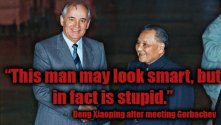European support for Ukraine’s battle against Russia could dry up amid the cost of living crisis, Britain fears.
The Telegraph understands that UK diplomats have been travelling to European capitals to make the case against cutting aid to Kyiv.
European governments were said to be increasingly concerned about spending on arms and humanitarian supplies as citizens face rocketing energy prices, according to a source briefed on the talks.
On Tuesday, economists said the eurozone had entered recession, with German businesses in their worst slump for two years.
In an acknowledgement that European support could fracture in the coming months, Josep Borrell, the EU’s top foreign diplomat, on Tuesday said keeping the bloc together was a “day-to-day” struggle.
Vladimir Putin sees “the weariness of the Europeans and the reluctance of their citizens to bear the consequences of support for Ukraine”, he told AFP, adding: “We will have to endure, and spread the costs within the EU.”
The source briefed on talks with European capitals said British envoys had been directed to argue that the cost of allowing Putin to win in Ukraine was greater than that from spiralling bills.
Emmanuel Macron, the French president, on Tuesday promised that Paris would support Ukraine for the “long term”. He has warned citizens that rising inflation and food prices are “the cost of freedom”.
Olaf Scholz, the German chancellor, pledged an extra €500bn euros of weaponry for Ukraine, set to be delivered in 2023.
Writing for The Telegraph, Liz Truss, the Tory leadership front runner, meanwhile pledged to increase intelligence sharing from MI6 if she becomes prime minister.
Senior EU officials nevertheless fear a “crunch point” may be hit in autumn or early winter that will turn domestic opinion against further aid to Ukraine.
Italy holds an election in September that is likely to bring to power a Right-wing coalition including parties historically sympathetic to Moscow.
Some EU nations were said to be considering calling for sanctions on Russia to be loosened to ease pressures on the eurozone economy ahead of a meeting of foreign affairs and defence ministers in Prague next week.
Speaking ahead of his country’s independence day, which coincides with the six-month anniversary of the invasion, Volodymyr Zelensky, the Ukrainian president, warned Western allies against cutting support. “If the world shows fatigue with the war in Ukraine, it will be a big threat to the world,” he said.
July was the first month since the war began in which none of the five largest EU economies – Germany, France, Italy, Poland and Spain – made new pledges of military support.
Britain joined the group of European nations in making no new pledges, but soon afterwards offered to double the number of M270 long-range rocket launchers, the Army’s most advanced missile system, being sent to Kyiv.
Boris Johnson on Tuesday said support for Ukraine must continue until Russia withdraws its forces from Crimea.
“In the face of Putin’s assault, we must continue give our Ukrainian friends all the military, humanitarian, economic and diplomatic support that they need until Russia ends this hideous war and withdraws its forces from the entirety of Ukraine,” the Prime Minister told an international conference.
You are using an out of date browser. It may not display this or other websites correctly.
You should upgrade or use an alternative browser.
You should upgrade or use an alternative browser.
Miscellaneous News
- Thread starter bd popeye
- Start date
Just in time for Cold War 2.0 too. Shame that the nation he once’s ruled are now the chess pieces.
Based Deng
"Seek truth from facts"
"No matter if it is a white cat or a black cat; as long as it can catch mice, it is a good cat."
"This man may look smart, but in fact is stupid"
For real... how did the Soviet Union just collapse without a fight.... Dude just let it happen.
Because the CPSU was shit.For real... how did the Soviet Union just collapse without a fight.... Dude just let it happen.
Besides dismantling the USSR. What else did he do?
Bringing Pizza Hut to the Soviet Union.Besides dismantling the USSR. What else did he do?

